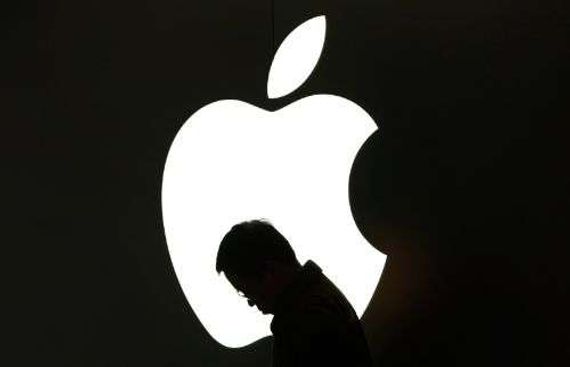Apple Dials 'Privacy 2.0' as Data Security Takes Centrestage

Not so long ago, Apple refused to unlock an iPhone for the US Federal Bureau of Investigation (FBI) sleuth, solely for the reason that users' privacy has always been its topmost priority which can never be compromised.
What makes Apple stand out in the hullabaloo over privacy -- at a moment when several tech giants such as Facebook, Google, Amazon and Twitter face intense scrutiny and record penalties from the governments for compromising users' personal information -- is its proactive approach towards maintaining strong security hygiene around its device and app ecosystem.
Now, to bolster its data security efforts in India, Apple on Sunday launched an out of home (OOH) privacy campaign in Bengaluru, Gurugram and Mumbai via TV, YouTube and social media platforms.
The idea is to reach out to people in the country and make them understand how data privacy has to be at the core of their devices.
The fact is: Apple is yet to face any big controversy over users' privacy or data violation and for the company, "the user controls the data, not the company".
Apple which listens to both internal and external viewpoints while ringfencing users from new-age cyber criminals, has now launched "Privacy 2.0" to give users peace of mind about their data and personal space.
Be it processing data on the device so that only user can see or minimising personal data collection as it design products, Apple is challenging itself to collect as little customer data as possible.
The idea is to disassociate the user from their data.
Apple in June announced a slew of new privacy features with iOS 13, like Sign in with Apple where the user won't need to sign into Apple devices with third-party players like Facebook or Google.
The feature rivals similar sign-ins from Facebook and Google and guards the users by Apple's Face ID 3D login system on iPhones and iPads.
"Data collection is limited to the user's name and email address, and Apple's private email relay lets users receive email even if they prefer to keep their address private. Apple will not track users as they interact with your app," the company said.
"All accounts are protected with two-factor authentication for superior security, and Apple will not track users' activity in your app or website," said Apple.
When it is necessary for data to leave your device to be processed or stored in the cloud, Apple would let you know and give you the ability to control it.
Every account using 'Sign In with Apple' is automatically protected with two-factor authentication. On Apple devices, users are persistently signed in and can re-authenticate anytime with Face ID or Touch ID.
"Sign In with Apple" works natively on iOS, macOS, tvOS and watchOS. It works in any browser, which means you can deploy it on your website and in versions of your apps running on other platforms.
Apple is also working on new security features to safeguard your photos and videos from hacking or third-party apps from reading your information.
"iOS 13 is twice as faster than iOS 12. The idea is to give Apple users a more agile and secure experience," says Apple CEO Tim Cook.
With iOS 13 that is coming this fall, Apple users will probably have another reason to smile when it comes to data privacy and security.
"The Indian leg of the privacy campaign will begin from 28 July across out of home (OOH) platforms in Bengaluru, Gurugram and Mumbai, and television advertisements, besides and social media. The television ads will feature a privacy film featured on Youtube," said a person aware of the details of the campaign.
Read More News:
Apple to release 3 iPhone 11 models with A13 chip
Indian Enterprises Shift to Cloud, Security Top Concern: CMR
